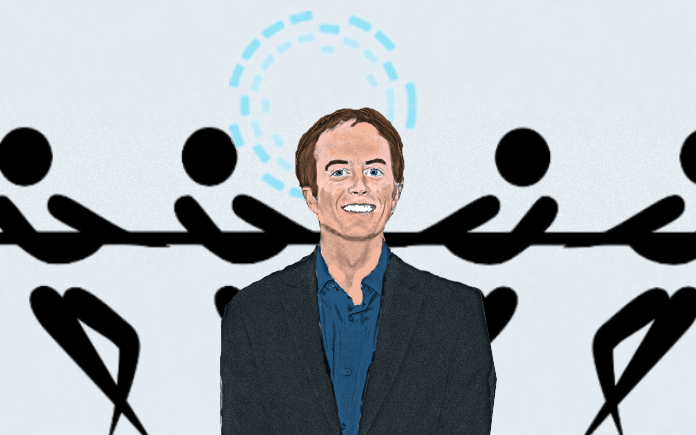
The block size limit controversy has spilled into 2016, and it does not appear as though there is an end in sight for what should be a mostly technical debate among developers. Ad hominem attacks have been spotted on both the small and large block size camps, with conspiracy theories about Blockstream becoming one of the common criticisms of Bitcoin Core’s official roadmap.
One person who has recently attempted to bring some civility to the discussion is ShapeShift.io CEO Erik Voorhees. Voorhees was recently interviewed by Zach Doty on the Bitcoin.com Podcast, and he shared his views on Blockstream’s alleged conflict of interest in regards to the Bitcoin development process.
A Conflict Does Exist
Voorhees was bluntly asked about his thoughts on Blockstream’s control over Bitcoin Core development during the interview, and Voorhees did not hesitate to share his opinion. The ShapeShift.io CEO first pointed out that Blockstream’s conflict of interest does exist, but it’s not necessarily a problem.
Voorhees stated:
“They seem to have a conflict of interest; that’s not necessarily bad or a problem. Conflicts of interest exist everywhere all the time; no one’s immune from them.”
Voorhees went on to explain that Blockstream should not be demonized for having a scalability solution that could involve a small block size limit:
“I don’t think Blockstream should be vilified for having a solution that may be more valuable if blocks are small, and it does not mean that the Core developers are corrupted into making Bitcoin worse for the benefit of one company.”
Conspiracy theories around Blockstream’s motives and revenue streams have run rampant on /r/btc. These theories are usually based around the idea that Blockstream is attempting to force Bitcoin users off the main Bitcoin blockchain and onto sidechains or the Lightning Network.
Blockstream’s Allegiances are with Bitcoin
Voorhees also pointed out that many of Blockstream’s executives and employees have been involved with Bitcoin for quite some time. In his view, it makes sense for their allegiances to be more aligned with Bitcoin than their own company.
Voorhees stated:
“It’s possible [Blockstream is corrupt], but I don’t think it is, and I will give people the benefit of the doubt. A lot of people in Blockstream were involved with Bitcoin long before Blockstream. They are very dedicated and passionate about the project as a whole, and I would bet that their allegiances are largely more to Bitcoin in general than they are to Blockstream in particular.”
Voorhees’s comments align with a blog post made by LinkedIn Co-Founder and Blockstream Investor Reid Hoffman in November 2014. In his post, Hoffman explained his views on the main objectives for Blockstream as a company.
Hoffman noted:
“In this instance, the first objective is to increase the public good by strengthening the overall openness and functionality of the Bitcoin ecosystem through ‘sidechains’ technology. Delivering returns to investors is an objective as well – but it’s a secondary objective.”
In terms of Voorhees’s claim that many individuals involved with Blockstream have been involved in Bitcoin for a long time, he is referring to the likes of Greg Maxwell and Pieter Wuille (among others), who have been Bitcoin Core Developers since 2011. Austin Hill and Adam Back are also well-known cypherpunks who have been working on digital cash protocols since long before Bitcoin was invented.
Voorhees is Glad Blockstream Exists
All-in-all, Voorhees is glad that Blockstream exists. The ShapeShift.io CEO noted:
“I think Blockstream is an excellent company. They’re building some very cool stuff. I’m glad that they exist, and I don’t think people should be vilifying them to the extent that they have been.”
Some of the “cool stuff” that Voorhees is referring to here includes: sidechains, the Lightning Network, confidential transactions, segregated witness, Liquid, and much more. Although it’s wise to consider the implications of the many different conflicts of interest in the Bitcoin development process, it’s important to remember that a conflict of interest does not necessarily lead to corruption by default.
